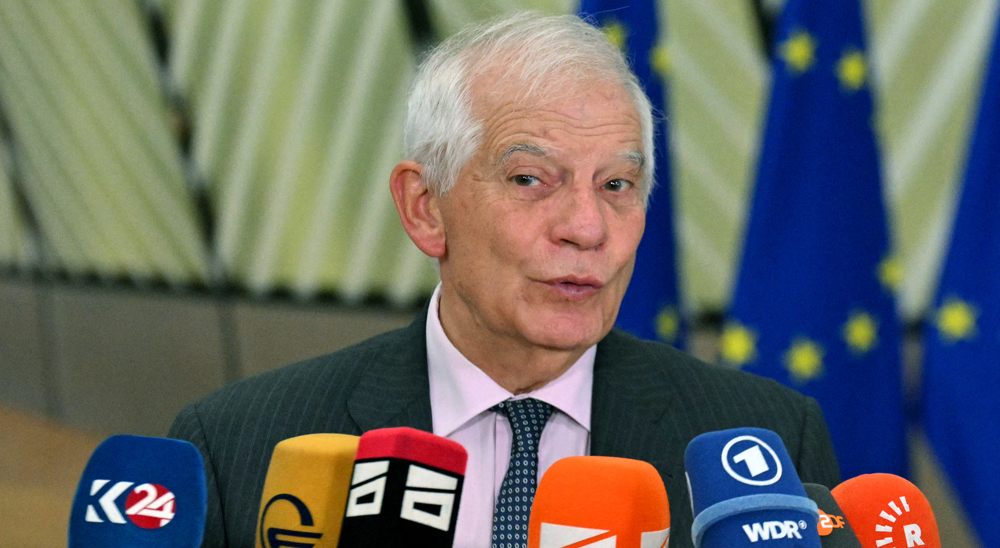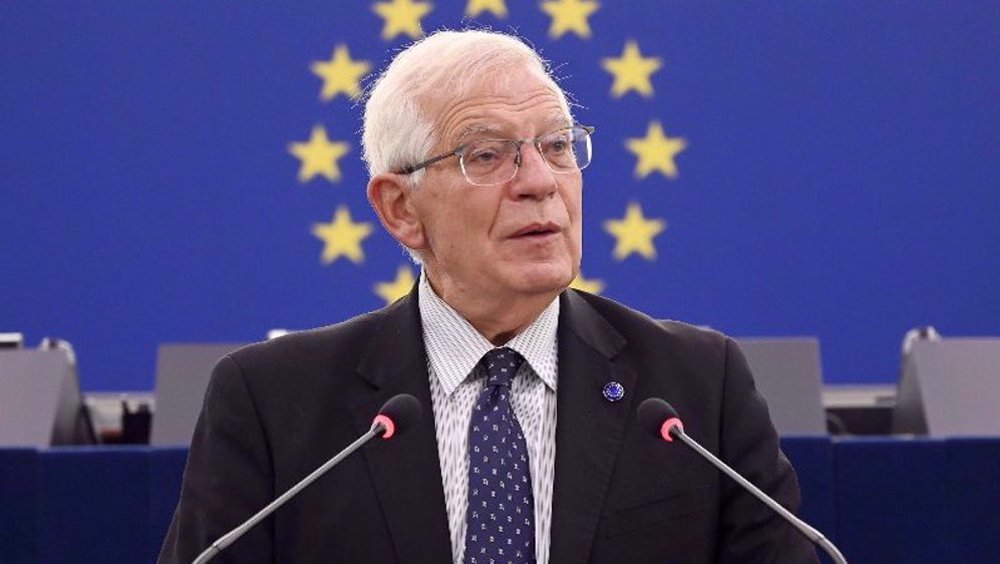European politicians call for new sanctions on Russia over Ukraine crisis
The European Union says it will consider further sanctions against Russia next month following the seizure of three intruding Ukrainian military vessels in Russian waters.
Senior politicians from Germany, Austria, Poland and Estonia on Tuesday signaled a tougher line towards Russia over the latest flare-up in the conflict.
Austrian Foreign Minister Karin Kneissl, whose country holds the rotating EU presidency, also raised the possibility of new EU sanctions during a press briefing with her German counterpart Heiko Maas in Berlin.
Kneissl said the EU would consider sanctions depending “on the exposition of facts and the further conduct of both parties”.
"On the issue of further sanctions, time will tell - we have a summit in December," she told reporters, adding, "Everything depends on the accounts of events and the actions of both sides. But it will need to be reviewed."
Maas, for his part, repeated Berlin's call for Russia to release the seized ships and sailors "as soon as possible".
The top German diplomat went onto say the latest escalation showed "that the annexation of Crimea... is also a problem for the security of us all in Europe".
"Both sides must now do their part for deescalation," he added.
Norbert Roettgen, a member of German Chancellor Angela Merkel’s Christian Democratic Union and a leading Merkel ally, said Europe may need to toughen sanctions against Moscow.
Polish President Andrzej Duda said his country was ready to back new sanctions.
Estonian Defense Minister Juri Luik called sanctions “probably the most potent way to signal to the Russian leadership that we are serious”.
The United States and EU have already imposed sanctions on Russia over the ongoing Ukraine crisis.
The developments come as Kiev's Western allies have accused Moscow of using force without justification in the recent naval confrontation through the Kerch Strait in the Azov Sea .
Merkel, an important voice in any future EU decision to impose more sanctions, on Monday spoke by phone to both Ukrainian President Petro Poroshenko and Russian President Vladimir Putin.
Both Russia and Ukraine are trying to cast the other side as being in the wrong.
Putin told Merkel by phone on Monday that Moscow was ready to provide more details to bolster Russia’s version of events. Moscow says Ukraine deliberately provoked Russia to trigger a crisis.
Ukraine, which on Monday night introduced martial law for 30 days in parts of the country, said its ships did nothing wrong.
Russia’s FSB security service however said it had information showing the sailors’ mission had been pre-planned by the Ukrainian government and that two intelligence officers from Ukraine’s SBU security service had been on board to coordinate the provocation.
Vasyl Hrytsak, the head of the SBU, confirmed that his officers were on board to support the military.
Some of the more than 20 Ukrainian sailors held by Russia for straying into Russian waters appeared on Russian state TV on Tuesday admitting to being part of a pre-planned provocation.
Separately, the United Nations' secretary general on Tuesday urged Russia and Ukraine to use "maximum restraint" and avoid further escalation after a confrontation in the Black Sea.
Antonio Guterres spokesman said in a statement that he was "greatly concerned" about the incident near the Crimea peninsula near the Kerch Strait, calling on "both parties to exercise maximum restraint and to take steps without delay to contain this incident and reduce tensions."
The Sea of Azov is a strategic ocean route linked to the Black Sea by the narrow Strait of Kerch where Russia has built a bridge to link the Crimean Peninsula with the mainland.
Tensions escalated earlier this year after Ukraine detained two Russian ships for port calls on Crimea, which rejoined Russia in a 2014 referendum.
Moscow described the move as "maritime terrorism" and increased patrols off its Azov coast to guarantee free navigation by Russian ships.
VIDEO | Sydney protests demand action as Israel faces ICC warrant for war crimes
Iran to host ‘important’ ECO foreign ministers' meeting in Mashhad
Wounded in Israeli strike, health of Kamal Adwan Hospital's director worsens
VIDEO | Press TV's News Headlines
Iran reports 11% drop in domestic red meat supply
Arab League affirms support for Iraq amid Israel's threats of military action
VIDEO | Fierce fight in Southern Lebanon
Over 1000 medics killed in Gaza as Israel systematically targets hospitals














 This makes it easy to access the Press TV website
This makes it easy to access the Press TV website